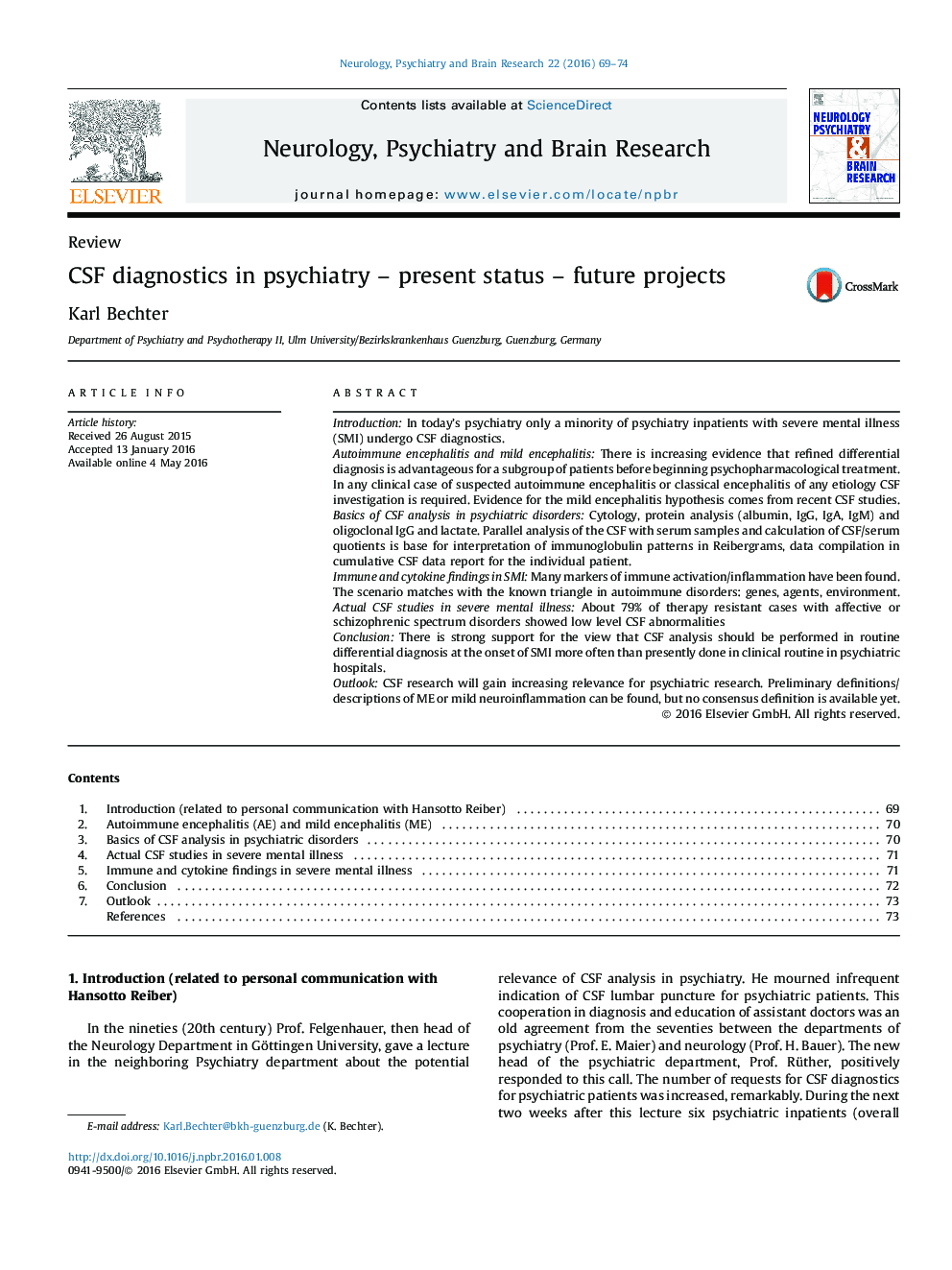| کد مقاله | کد نشریه | سال انتشار | مقاله انگلیسی | نسخه تمام متن |
|---|---|---|---|---|
| 4188249 | 1277977 | 2016 | 6 صفحه PDF | دانلود رایگان |

IntroductionIn today’s psychiatry only a minority of psychiatry inpatients with severe mental illness (SMI) undergo CSF diagnostics.Autoimmune encephalitis and mild encephalitisThere is increasing evidence that refined differential diagnosis is advantageous for a subgroup of patients before beginning psychopharmacological treatment. In any clinical case of suspected autoimmune encephalitis or classical encephalitis of any etiology CSF investigation is required. Evidence for the mild encephalitis hypothesis comes from recent CSF studies.Basics of CSF analysis in psychiatric disordersCytology, protein analysis (albumin, IgG, IgA, IgM) and oligoclonal IgG and lactate. Parallel analysis of the CSF with serum samples and calculation of CSF/serum quotients is base for interpretation of immunoglobulin patterns in Reibergrams, data compilation in cumulative CSF data report for the individual patient.Immune and cytokine findings in SMIMany markers of immune activation/inflammation have been found. The scenario matches with the known triangle in autoimmune disorders: genes, agents, environment.Actual CSF studies in severe mental illnessAbout 79% of therapy resistant cases with affective or schizophrenic spectrum disorders showed low level CSF abnormalitiesConclusionThere is strong support for the view that CSF analysis should be performed in routine differential diagnosis at the onset of SMI more often than presently done in clinical routine in psychiatric hospitals.OutlookCSF research will gain increasing relevance for psychiatric research. Preliminary definitions/descriptions of ME or mild neuroinflammation can be found, but no consensus definition is available yet.
Journal: Neurology, Psychiatry and Brain Research - Volume 22, Issue 2, June 2016, Pages 69–74